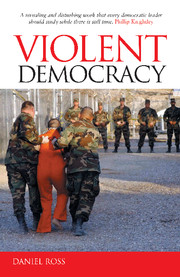Book contents
Afterword: The Politics of Torture
Published online by Cambridge University Press: 22 September 2009
Summary
At stake in this case is nothing less than the essence of a free society. Even more important than the method of selecting the people's rulers and their successors is the character of the constraints imposed on the Executive by the rule of law. Unconstrained Executive detention for the purpose of investigating and preventing subversive activity is the hallmark of the Star Chamber.
Justice John Paul StevensIn order to respect the President's inherent constitutional authority to manage a military campaign, 18 USC § 2340A (the prohibition against torture) must be construed as inapplicable to interrogations undertaken pursuant to his Commander-in-Chief authority. Congress lacks authority under Article I to set the terms and conditions under which the President may exercise his authority as Commander-in-Chief to control the conduct of operations during a war. The President's power to detain and interrogate enemy combatants arises out of his constitutional authority as Commander-in-Chief.
Working Group Report on Detainee Interrogations in the Global War on TerrorismViolent Democracy is concerned with the thought that the very idea of democracy is violent. It argues that the concepts of a people, a border, and of foundation are violent in themselves, in that they are all ideas that must be imposed, in spite of their impossibility, in order to get democracy going. Democracy, if democracy happens, always happens as the assertion of its own existence. And this assertion, because it is an assertion, a self-assertion, is always threatened, subject to exposure as an apparition.
- Type
- Chapter
- Information
- Violent Democracy , pp. 151 - 173Publisher: Cambridge University PressPrint publication year: 2004



